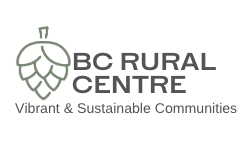
Economic Resilience Action Plans: Toolkit for Plan Development
How to Use this Toolkit
This toolkit was developed to accompany an in-person economic resilience planning process and help communities to fill gaps, expand their thinking about particular issues, and keep track of relevant questions to answer towards economic resilience.
The toolkit explains each section of the plan and provides case studies, suggested activities, and other information to support the process of completing the plan. Nothing within the toolkit or the resulting plans is meant to be kept static.
Users are encouraged to take or leave what they choose, and reorder sections as it suits their own needs. The goal is
to support the organic development of plans tailored to local contexts and requirements.
A blank, editable template with corresponding headings can be found in the Appendix.
Communities go through this process on their own or can retain planning supports from organizations that specialize in this kind of work. It might be useful to have planners or experts in economic resilience to help review plans or facilitate planning sessions.
However, the toolkit should provide enough direction to get through each section on their own if enough time and
dedication is directed at the process. Importantly, economic resilience plans are not intended to exist separately and unconnected to other policy instruments. The ERAPs should be connected to plans and planning processes for
emergency management and economic development so there is harmony between the various plans and policies. The ERAPs are intended to bridge plans that have typically not “spoken” to each other or have not been integrated.
View/Download > Economic Resilience Action Plans: Toolkit for Plan Development
Project Information
Beginning in 2019 the Community Economic Development Program at Simon Fraser University (SFU CED) collaborated with the Selkirk Innovates and Community Futures Central Kootenay to support eight communities in the Kootenay Region to develop economic resilience plans. The plans were developed through community engagement sessions with local economic
stakeholders including economic development practitioners, business owners, workforce specialists, local government officials, and others. The plans were intended to be iterative and should continue to be improved through successive engagement sessions and work completed by committees developed for this purpose.
The work was funded by Selkirk College through a Rural Dividend Fund grant from the BC Ministry of Forests, Lands, Natural Resource Operations, and Rural Development (FLNRORD) as well as from the Regional Districts of Kootenay Boundary, Central Kootenay, East Kootenay, and Town of Golden and Columbia Basin Trust.
The project was led by Dr. Jeremy Stone, then director of SFU CED. The following toolkit was designed and drafted by Dr. Stone in May 2020. Publication of this toolkit was delayed initially due to the COVID-19 pandemic, then by Dr. Stone’s death in 2022.
Revisions were completed by Dr. Sarah-Patricia Breen, Regional Innovation Chair in Rural Economic Development at Selkirk College, following a plan developed with Dr. Stone.
It is with gratitude to Jeremy that we publish this work, so that others may benefit from his ideas.
Citation: Stone and Breen. 2025. Economic Resilience Action Plans: Toolkit for Plan Development.
Learn More about Selkirk Innovates.
